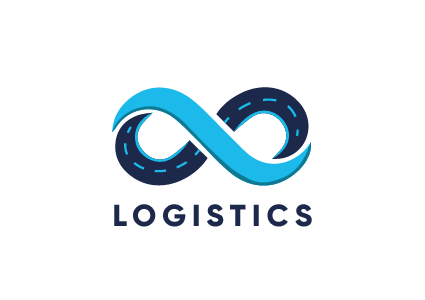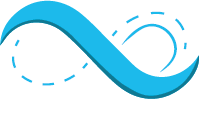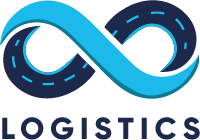New trade agreements should shape business and logistics not only in Europe but globally. Like most changes, they can bring challenges as well as opportunities. What does the post-Brexit trade agreement mean to the retail and lifestyle industries in practice?
Despite the approval of the deal, Brexit still brings significant uncertainty to many companies operating in the UK. Since the Covid-19 pandemic started in March last year there has been global uncertainty, it brought unprecedented changes to all supply chains, politics and business have been swallowed by the pandemic, worrying about pressing issues at the expense of Brexit preparations.
Lines in the sand
The UK is already under pressure to reach an agreement. Months of isolation has dealt a heavy blow to the economy, and neither side wants to cause more harm. On Christmas Eve, the British government signed a Trade and Cooperation Agreement (TCA) with the European Union at the last minute, approving a zero-cost, zero-tariff agreement on everyday items, and effective consumer protection for consumers in the UK and EU.
Senior industry organizations, including the British Retail Consortium and Logistics UK, welcomed the news, but warned that the transaction requires further study. In addition, the agreement will not prevent all trade in and out of the UK from being interrupted; British goods will continue to be subject to border controls, resulting in increased delivery times.
As of January, companies needed to ensure that they have the proper systems and processes to keep transactions going smoothly. Logistics companies said they are “ready to leave the European Union”, However, most of the customers ask themselves the same question: What does the new UK/EU Trade and Cooperation Agreement mean for online and multichannel retailers in practice?
Turning tides – What the deal has changed
The regulation caused business chaos. Many British companies quickly discovered that they now have to pay tariffs on exports to the European Union. The agreement came into effect on January 1st and is based on the so-called “rules of origin” that apply to all transit goods. Rules of origin are a key aspect of any major commercial agreement and can quickly become a headache for companies. According to the Brexit provisions, any product or item that enters the UK from abroad and then exports back to the EU is subject to tariffs.
Starting January 1st, UK exporters will need an EORI number starting with the letters “GB”, which is a sequence that already exists when exporting to countries outside the EU, to prove that they are recognized distributors. Starting in January, most goods exported to the EU will be subject to a 0% UK VAT rate. When these goods reach their destination country, an import VAT is levied.
The Trade and Cooperation Agreement (TCA), also known as the Free Trade Agreement (FTA), applies to goods originating in the European Union or the United Kingdom, as well as imported goods that are exempted from tariffs in the region. Items from outside these areas are charged. UK retailers who sell directly from the country of origin to EU buyers can send orders to buyers in separate packages via mail or courier. If not sending individual packages, they must submit the declaration form to the British Customs. Most companies outsource this activity and use their own freight forwarders or customs brokers.
The EU/UK agreement seems to eliminate the threat to the supply chain because it allows cargo to be transported by land, sea and air. For 40 years, EU retailers and brands have submitted customs declarations and may meet sanitary and phytosanitary (SPS) requirements. Delays will be inevitable. We have seen shortage in storage space due to Brexit, Christmas and Covid-19 pandemic, which has caused limited storage space to delay delivery and disrupt the flow of goods, even bringing some supply chains to a standstill.
Beware of Brexit trade winds
As Brexit slows down, some major retailers have taken action and opened bonded warehouses in the UK. General tariffs on imported products, such as auto parts that are processed and then exported from the UK as finished auto parts. As people shop more online, broader market data also shows that the demand for storage space is increasing. The continued growth of e-commerce transactions will create an additional 30 million square feet of storage demand in 2021.
The availability of industrial warehouses in the UK dropped to 5.6%. Even companies worried about the impact of Brexit are preparing for greater risks by doubling storage capacity, improving the ability to fulfill contractual obligations, and improving the competitiveness and profitability of their business models. Consumer products companies also store supplies to help solve delivery bottlenecks.
Taking your business to the next level in 2021
Having key supply chain data allows the company to effectively adapt, predict and respond. The digital transformation of the supply chain can help you deal with manual processes, internal communication, and siloed data. It also reduces unnecessary human error. The costs and challenges of coordinating orders, poor visibility and customs compliance are far from the only solutions to the risks faced by some of the leading industries in the UK.
We believe that companies can deal with today’s uncertainties by reshaping the supply chain. Flexibly adapt to short-term interruptions and sustainably improve resilience and bottom-line performance. The pioneering company is already taking steps to make real progress. This can be seen from the strength of its supply chain and the reduction in costs, depreciation, inventory and investment.
Customizing your logistics to tackle disruptions
This is where we come in, whether you need storage solutions in the EU, B2C – pick&pack services, B2B services or FBA services, 8Logisitcs can help you succeed and continue your important business as if Brexit never happened.
8Logisitcs will become your partner, with full transparency and cooperation.
We are glad to offer our services to UK companies, as well as EU companies that need logistic solutions for their businesses.




One thought on “Beyond Brexit – Getting Your Logistics Ready For The New Business Reality Of 2021”
Hi, this is a comment.
To get started with moderating, editing, and deleting comments, please visit the Comments screen in the dashboard.
Commenter avatars come from Gravatar.